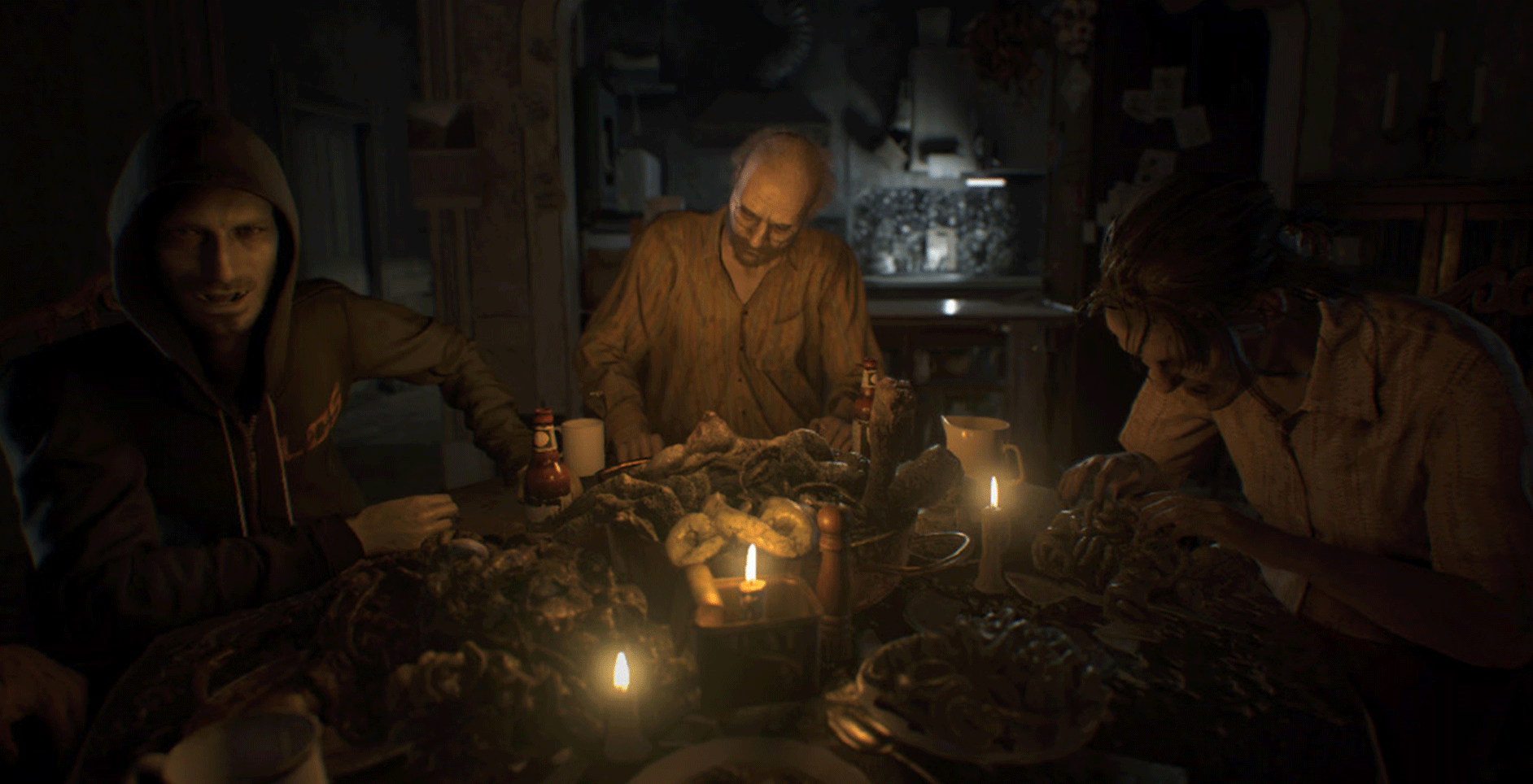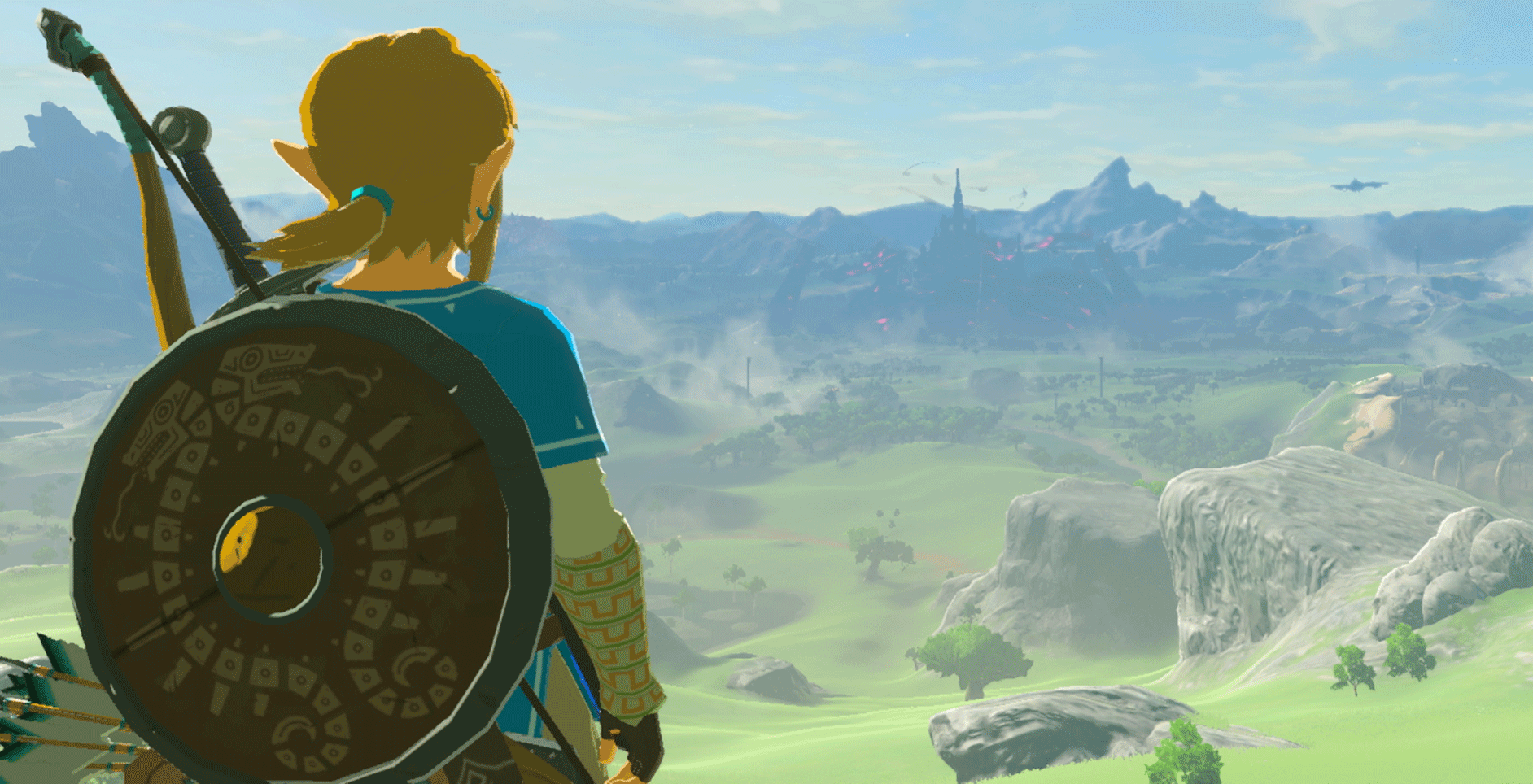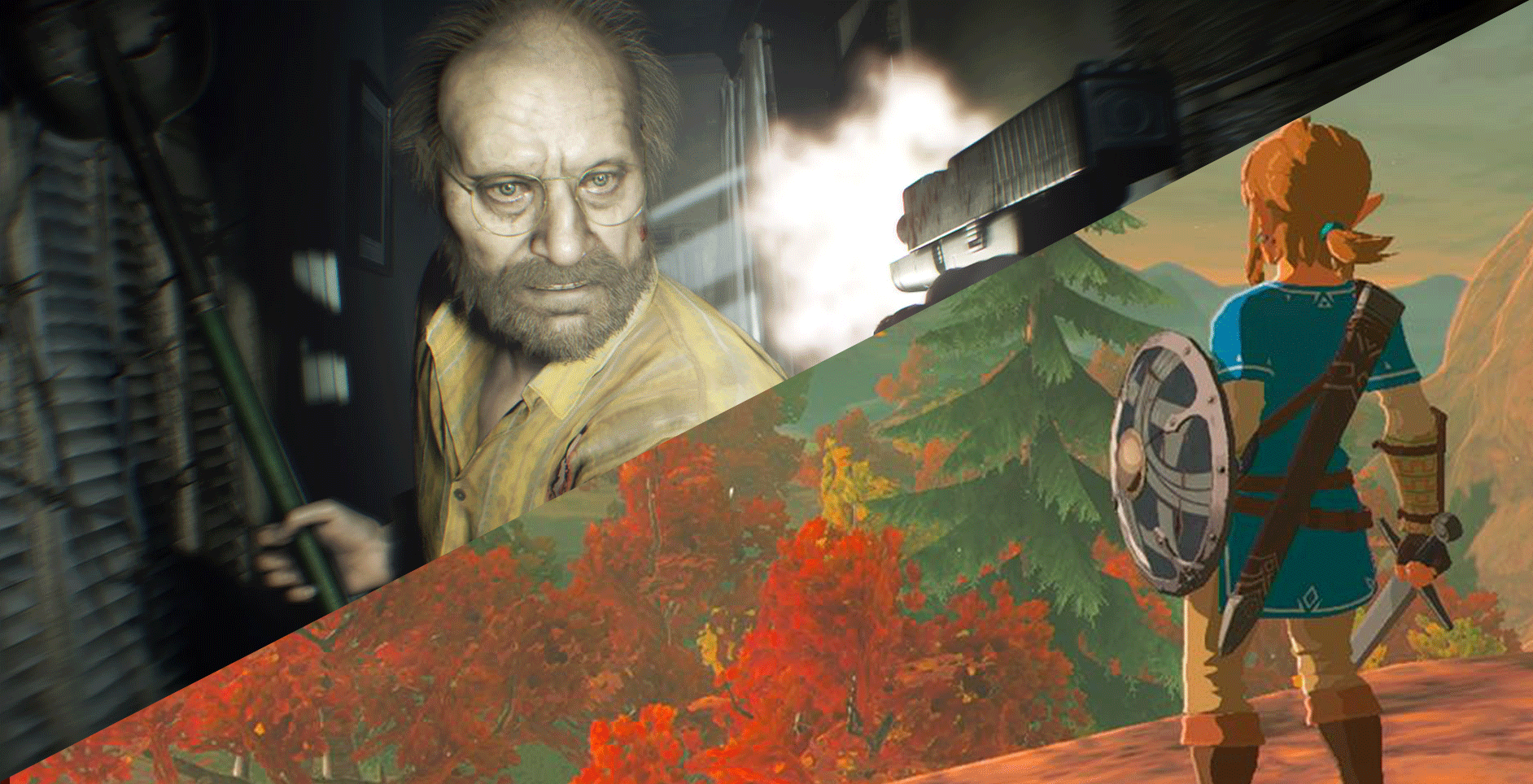The beginning of 2017 has been defined by redefinitions. Franchises and systems that have languished from a lack of direction have been stripped back to their roots, condensed to their basic elements, and rebuilt anew – learning from everything that has unfolded since their inception.
The first example we saw of this reinvention was Resident Evil 7. It’s no secret that the series has been struggling to maintain relevance outside of its ever dwindling fan base. After Resident Evil 4 brought the franchise back from impending doom, it seemed that with each new series entry the core essence of Resident Evil became more and more diluted. It got to the point where a game like Revelations prompted comments like “It’s actually scary!”, since this was the exception rather than the rule. Capcom eventually came to realise that this wasn’t what the fans wanted, and sought to recapture the identity the series had lost – they absolutely nailed it with Resident Evil 7.
I was genuinely concerned for Resident Evil 7 when it was first unveiled. The first-person horror genre had drifted from being an interesting emerging subgenre to one that was flooded with jumpscare rollercoasters and “me too” imitators of Amnesia. A cynical RE fan could be forgiven for suspecting that Capcom would take the easy route and follow the crowd. Thankfully they didn’t, and in doing so succeeded in bringing Resident Evil to a new perspective that retained what fans had long been yearning for, whilst simultaneously shedding the convoluted storyline that had acted as a barrier to potential newcomers from jumping in.

2017’s next big reinvention came in the form of The Legend of Zelda: Breath of the Wild. While Resident Evil weathered criticism for changing its formula too much, The Legend of Zelda was harboring it’s own flak for its formula becoming stale. Aside from some occasional curve balls the Zelda franchise was somewhat rightly accused of rehashing the same formula established by A Link to the Past in 1991, whilst also chipping away at player agency with each new entry. Ocarina of Time had a helpful assistant fairy, Navi, who offered some direction at important junctions and advice when you needed it. With each new instalment the assistant characters became more overbearing, until we reached the universally reviled Fi of Skyward Sword – an assistant more interested in tediously calculating your success percentage than in genuinely helping you progress.
It took a while, but eventually Nintendo came to realise that Zelda had strayed too far from its explorative roots – strapping players into an exciting but restrictive rollercoaster, far from the original game inspired by childhood exploration of gardens and forests. Breath of the Wild brings back this essential exploration element and sheds itself of any mechanic that previously stood in the way of discovery. Like Resident Evil, it was easy to cynically expect Zelda to follow it’s contemporaries, though any concerns that Zelda might feel like ‘Ubisoft in Hyrule’ were quelled when we finally got our hands on the game.
You weren’t mindlessly following a screen full of objective markers or checking off a list of objectives like you might in a Far Cry game, nor were you following the same ‘three dungeons – world changing event – some more dungeons’ formula that defined much of Zelda up to this point. Instead, you explored – at your own pace you climbed a tower; you saw a landmark in the distance and marked it for yourself as a point of interest; you climbed mountains just to see what you could spy. By shedding what was thought to be essential in a Zelda game, Breath of the Wild effectively recaptured the feeling of wonder and discovery that some of its fanbase feared we had forgotten.

Along with this refreshing of Zelda, Nintendo also reinvented their concept of a games console with the Switch. For most of their video game centric history Nintendo have diversified their efforts across both a home console system and a portable games platform. The portable unit was generally less powerful than the console, but often enjoyed more success than its contemporary home console. The GameBoy Advance helped Nintendo’s bottom line when the GameCube was struggling, and the same could be said about the 3DS during the recent lukewarm reception of the Wii U. Rather than splitting it’s efforts between two platforms as it always has, Nintendo decided to combine them.
It’s far too early in the lifetime of the Switch to declare this new direction a success, but the initial signs are certainly promising – the Switch is selling even faster than the phenomenal Wii did at it’s launch. The split of the past meant that Nintendo’s own development efforts were divided between these two platforms, and players needed to buy both systems to enjoy the full range of the Nintendo developed games they wanted to play. With the Switch, Nintendo has consolidated its efforts into a single platform. Once the 3DS’s limited remaining library thins out, the Switch will be where all of Nintendo’s games end up – which also means that Nintendo is betting the farm on the Switch’s success. There’s no second platform lifeboat anymore – the Switch is everything Nintendo has learned in the past and embodies its hopes for the future of games. It remains to be seen whether this grand plan will pan out, but it’s an all-or-nothing approach that certainly has me more excited about the company’s future than I have been in a long while.
We’ve had an incredible start to 2017 when it comes to games. NieR: Automata, Nioh and Horizon: Zero Dawn have wowed us with gorgeous views and intricate gameplay mechanics. Games like Overwatch have moved from strength to strength, giving us new maps and gameplay modes to keep us coming back for more. We have an entirely new system in Nintendo’s Switch, and a newfound sense of hope for the company. I think I’ll remember the start of 2017 as a time where games that had lost their way over the years managed to rekindle their essence, redefine themselves, and let players experience what made their early entries great in an entirely new way.



